We're an affiliate
We hope you love the products we recommend! Just so you know, we may collect a share of sales or other compensation from the links on this page at no additional cost to you. Thank you if you use our links, we really appreciate it!
Barking is a natural behavior for dogs, but it can be an irritation for their human family and neighbors when done excessively.
Dogs bark for many reasons, which include boredom, excitement, anxiety, and territoriality, among others.
To stop excessive barking in your dog, it’s important to identify the source of the problem. Once you know what’s causing your dog to bark incessantly, you can work to address the issue and prevent it from happening again.
With a little bit of patience and consistency in some work, you can help your pup learn to control their barking.
In this post, we’ll explore some of the most common reasons for this behavior and offer some tips on how to train a dog to stop barking.
We’ll also review some of the most frequently asked questions (FAQ) by pet parents on this issue. Be sure to check that out to find out why your dog might be barking at nothing, and other answers.
Why Do Dogs Bark?
Dogs are social beings, and barking is their primary way to connect with one another and with humans.
Barking in dogs can be elicited by many reasons. Maybe they’re excited, or they’re trying to scare off an intruder, or they are just plain bored.
Dogs bark when they’re excited because they want to capture your attention and inform you of what’s happening.

It’s their way of saying ‘Hello’ or ‘Look at me’. And it’s important to recognize what your dog is seeking to inform you. Your furry friend might be trying to get in touch with you.
Like telling you that they want food, water, playtime, or any other thing they think will make their owners happy.
Dogs bark when they’re afraid because they want to defend themselves or their territory. If your dog is barking excessively, it’s important to figure out why he’s doing it so you can address the problem.
Why Does My Dog Bark So Much?
These are some of the reasons why your dog might bark excessively:
1. Boredom
The most common reason for barking is boredom due to loneliness. When dogs are bored, they will often find means of entertaining themselves.
They may resort to undesired behavior like chewing, digging or even being aggressive. But sometimes they can simply bark to arouse your attention.
For example, if your dog is tethered outside all day, they may start barking to attract your attention when you’re inside.
This type of barking can be short-term, and will stop once the dog has gotten what they were looking for.
2. Separation Anxiety
My dog barks all day when I am at work and I don’t know the reason. This is a question that you might have asked yourself, perhaps with no answers.

A dog who has been left alone may growl or even bark excessively due to separation anxiety. This habit is most likely to be accompanied by other destructive behavior such as chewing and digging.
Dogs who can’t seem to stay alone, even for a short moment, might need behavioral correction therapy from a canine trainer.
3. Health problems
Sometimes a dog that barks excessively may have a medical problem, and owners should visit their vet to rule out any underlying health issues.
Such medical problems are those which inflict pain on your dog, and they can’t help but make their feelings vocal.
4. Fear or Anxiety
Dogs may bark when they hear something that scares them or because they are feeling anxious about something in their environment.
In some cases, dogs may bark to communicate with other dogs or people in the neighborhood. If this is the case, treatment may involve making sure that your dog feels safe and secure while also providing plenty of exercises and mental stimulation to keep them occupied.
How To Stop Excessive Barking in Dogs
You’ve probably been there before. You’re trying to relax in your room, but the incessant barking of your doggo is ruining your peace. Sound familiar?
Well, we’ve got some tips for you. The first step is to understand why dogs bark in the first place. Some common reasons are boredom, fear, and excitement.
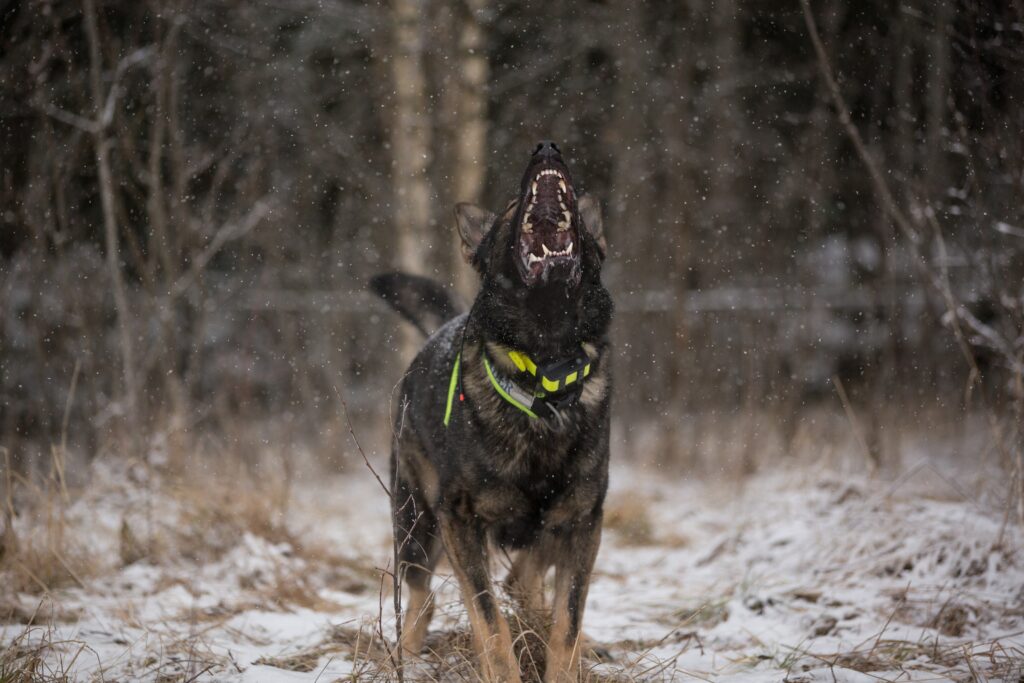
If your dog barks due to boredom or anxiety, you may need to get them appropriate toys, get them to exercise, and/or a more engaging and stimulating environment.
If they bark out of urgency or because they need to go outside, you may just need to provide them with proper training and guidance.
1. Ignore the barking
One of your first challenges will be to ignore your pup when they start barking. Begin by snubbing the behavior until when your dog gets quiet.
If your dog barks for a treat, and you give it to them, then you are teaching them to bark when they need something good.
It can be easier to give your dog what they want to tone down their barking but that will not help in the long run.
They will progressively develop this behavior and may start barking excessively to seek your attention.
As your dog notices that they are not getting your attention, you’ll be able to use this as a way to teach him not to bark.
You can reward your dog when he’s quiet by giving him a treat or distraction, such as taking them on a walk.
Do not ignore your dog when they bark because of fear, frustration, or when they seem to be in pain. You should only ignore them when they bark to request your attention while you can clearly see they are not in danger.
2. Exercise your dog
You need to keep your dog active by giving them plenty of exercises and mental stimulation. Take your dog for longer walks or runs, play fetching games with them, and ensure they get fully involved in their activities.
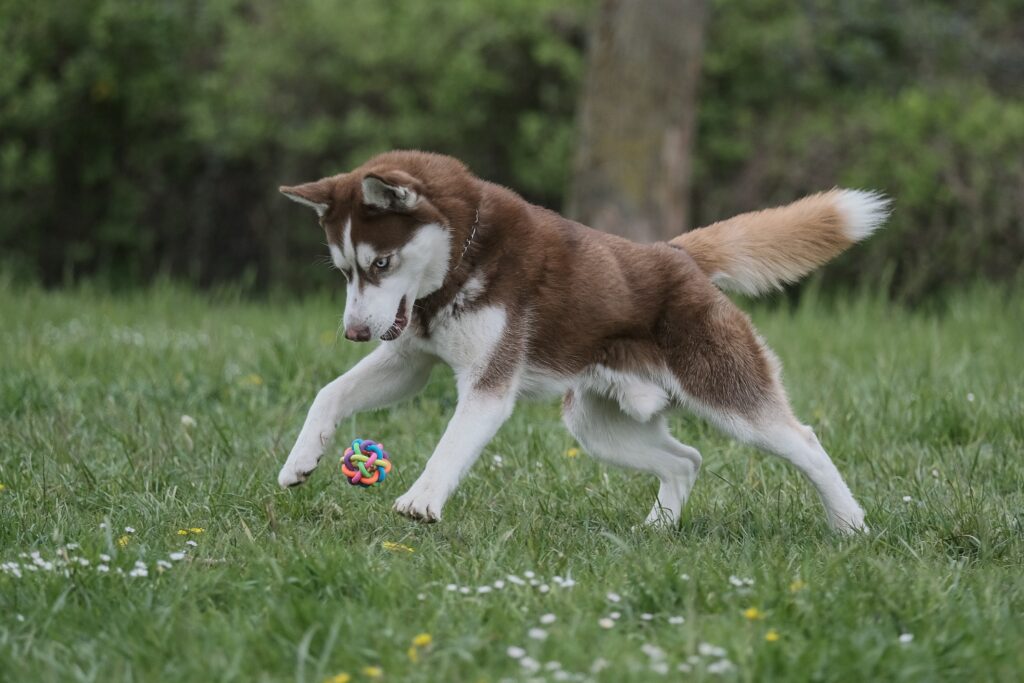
By giving your pup something to do each day, you ensure that they’re never bored or unhappy. And above all, it improves their health condition. This will also help to cut off barking that comes from frustration.
Physical exercise also makes your dog tired, and a worn-out dog is often a silent dog.
3. Familiarize your dog with the barking stimulus
You can familiarize your dog with the people, objects, sounds, and situations that make them to bark. By doing this, you are assuring your dog of their safety around the stimulus especially if they feel threatened.
Start by monitoring what motivates your dog to bark mostly. This could be anything that you will notice, no matter how trivial it may seem.
Once you know what triggers your dog to bark, you can then time when to start training them to be familiar. If it’s a neighbor who passes by your window daily, you can time when they are about to come out and get ready with your dog.
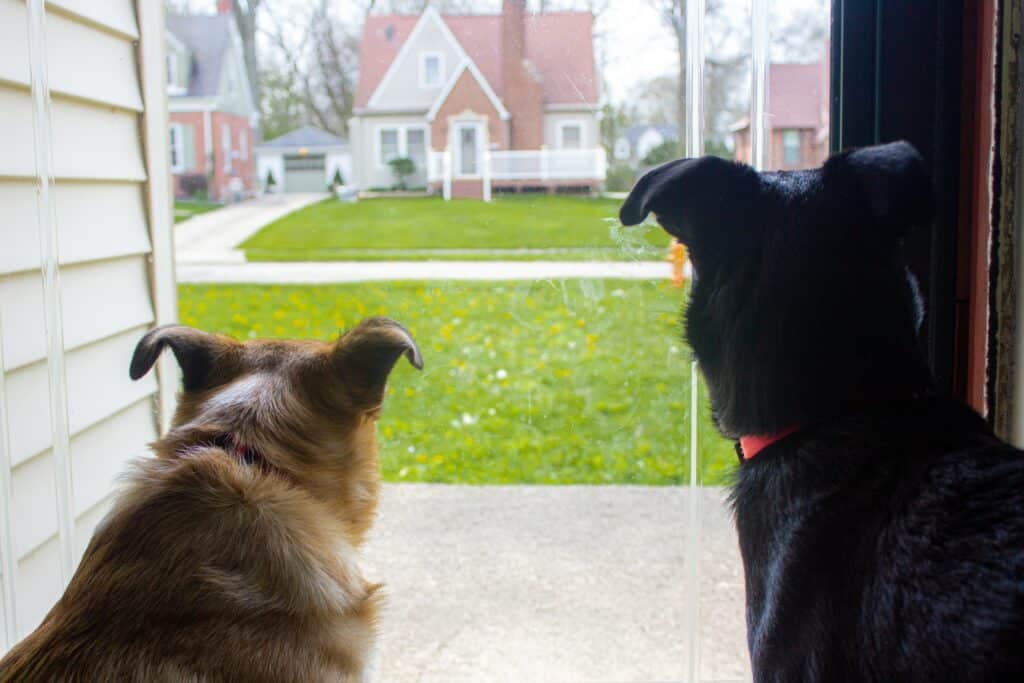
As the neighbor passes in a clear view from the window, you can pet your dog and reward them for staying calm. Make sure you are also watching with your dog. This will help them understand that you feel safe with the trigger.
You can do this repeatedly until your dog gets desensitized to what makes them bark the most. You should progressively make it better by moving your dog closer to what they fear most.
Maybe it’s the sound of children playing outdoors or the sound of a car’s engine in the yard. Take your dog out with you and let them see that there’s no cause for alarm for such situations, which might be happening daily.
4. Establish a quiet command
Dogs respond well to commands, so try teaching your dog a “quiet” command to stop the barking. You should say the word in a relaxed and firm voice. Shouting at your dog might scare them and make learning difficult.
Praise your dog and reward them with a treat when they have entirely stopped barking. With time, they will associate the quiet command with silence, followed by a tasty reward.
5. Using tolerable noise
For some dogs, noise works well as a deterrent to excessive barking. If you have a particularly persistent barker, you may want to try making a loud, yet tolerable noise to interrupt their barking.
Clapping your hands, stamping your feet, making a loud cough, and clearing your throat sound will interrupt the barking for some dogs.
You can also try using a sound machine. A sound machine generates ambient noise that can help mask the barking.
This may help train your dog to bark less. For example, you can use this machine to generate the sound of rainfall, the ocean, or even crickets to help discourage your pup from continual barking.
If your dog is particularly sensitive to noise, you can use an automatic bark-activated water gun. This device will spray them to interrupt the barking when such sound is detected.
Water guns are best used when you want your doggo to avoid barking at a particular area, such as near your children’s room. Don’t forget to teach your kids how to interact with dogs, to avoid any aggression toward them.
6. Teach your dog through rewards and repetition
Eventually, if your dog barks excessively, they may start to exhaust themselves. At this point, you can reach out to them through touch and a calming tone to let them know they are not alone and they can relax.
If your dog is barking because they need to go outside, you may want to wait them out by letting them bark a few times before taking any action.
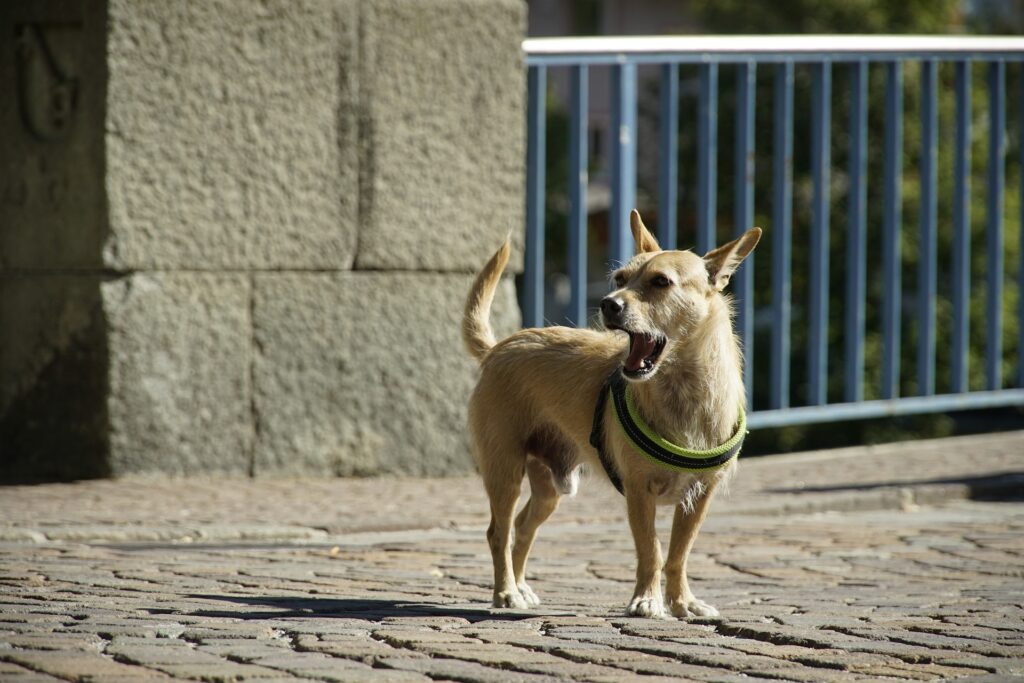
Ring the bell at your door before allowing your pup to go outside. This will inform them of the correct sound to look for when in need of going outside. You can then teach them how to ring the bell slowly.
Do not reward barking instantly. This will make your dog bark every other time they want something from you.
Reward your dog every time they go to the door to wait without barking.
7. Train your dog with consistent correction
You can use consistent correction to stop your dog barking without a fancy device or training. This approach is the most direct and simple, but it may not be the most effective one.
For example, if your dog is barking because they need to drink water, you can use a consistent correction to interrupt their barking before filling their water bowl.
In this case, you should first let your dog get silent before giving them what they want. You can hit the water bowl to make a sound before filling it with water.
This way, your dog will associate the bowl’s sound with water. And they may want to recreate the sound the next time they need to use the bowl.
8. Get professional help
If your dog is increasingly barking and the above methods seem not to work, then you should consider getting a dog training program.
There are a lot of different programs out there, so be sure to do your research and find one that works best for your dog. You need to go for a training program that focuses on stopping barking behavior.
We recommend the Brain Training for Dogs eBook.
How to Train a Puppy to Stop Barking
Barking is a natural behavior in all dogs, though some breeds do it more than others. It is common to see a puppy bark, even when it is not necessary.
You should start training your puppy to stop barking within the first days of adoption to prevent the behavior from becoming inherent.
The more time a dog barks, the more time you will need to correct the behavior. In addition to the above methods, you can try out the following to help your puppy tone down their barking.
You should start socializing your puppy with all the family members and other household pets as well. Let them know everyone in the household and this will give them space to become comfortable within a short time.
Take your dog out in the neighborhood to get familiar with the terrain. Let them meet more people in different places. This will broaden your dog’s mind and will make them cut down on barking at everything.
What to avoid
While training your dog to stop barking, you should try and avoid some things which may worsen the situation.
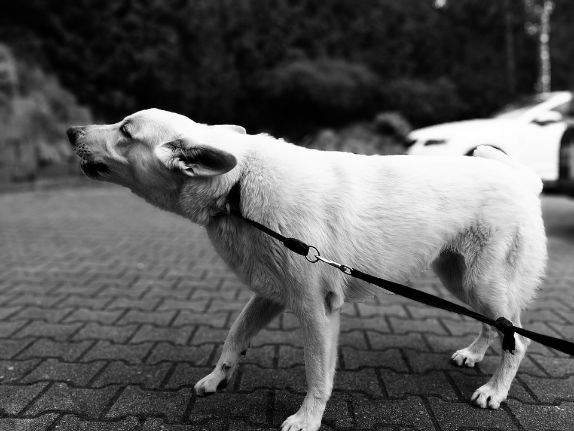
Here are some of them;
1. Do not shout at your dog to stop barking. They might think that you are joining in their frustration and this will make the situation worse.
2. You should not scold or punish your dog for barking. You should NOT punish your dog for doing that which is natural to them. You can only train them to stop barking but don’t force them by punishments.
3. Do not physically restrain your dog from opening their mouth to bark by using muzzles. A muzzle should only be used when correcting aggressive behavior as recommended by your vet.
4. Do not debark your dog. This is a surgical procedure done on dogs to reduce their barking noise. Debarking will only subject your dog to further complications which can be life-threatening. Furthermore, it doesn’t address the underlying causes of barking.
Frequently Asked Questions
How Do I Stop My Dog from Barking at Everything?
Maybe your dog barks at everything, or maybe they only go off when at home alone. No matter what the trigger is, excessive barking, especially towards anything, can be annoying and frustrating.
First of all, some dogs may bark at everything when they are overly excited.
If this is the case, you may want to teach your dog not to bark when they’re happy. Begin by training your pup in some basic commands like recall training & sit and stay.
This will help your pup understand that when he’s excited, they should focus on you and not make the vocals.
This process can be complemented with treat rewards so your pup knows they’re getting something enjoyable when keeping quiet during training.
Why Is My Dog Barking at Nothing?
Sometimes dogs bark for no reason, and it can be very frustrating. This might seem like a simple thing to troubleshoot, but the truth is that it’s not always as simple.
Dogs can bark to respond to high pitch sounds that humans can’t hear. This can seem like your dog is barking at nothing, whilst that’s not the case.
The most important thing to remember is that you should never drift away from your dog’s regular schedule just because they are barking.
Instead, try to figure out what is causing them to bark so that you can address the issue and prevent it from happening again.
Why Do Dogs Bark at People?
Protective dogs will bark at people who intrude their territories. They do this to alert their owners of a stranger.
But other times some dogs might bark at people due to excitement, fear, or when just saying ‘hello’.
You can watch this video by Will Atherton from Fenrir Canine Training where he sheds more light on this question and how you can help your dog:
Why Do Dogs Bark at Other Dogs?
Dogs have a lot of ways of communicating with each other, and barking is one of them.
If your dog is barking at other dogs, it might be because they’re trying to tell them that they’re the leader of the pack or that they’re not happy with them. It might also mean that he’s feeling threatened or scared.
The best way to stop your dog from barking at other dogs is to figure out why he’s doing it and then address that issue. With some patience and training, you can get your dog to stop barking at other dogs for good.
Why Do Dogs Bark at Night?
You might be wondering why your dog barks at night. Well, there can be a lot of reasons for it. Some dogs might bark because they’re anxious or scared, while others might just be trying to get your attention.
There are a few things you can do to discourage your dog from barking at night. The best one is to create a calm and relaxing environment for them to sleep in. Which might mean putting them in their own room or a comfortable dog crate.
The Final Word
These are some of the helpful tips on how to train a dog to stop barking. But it’s important to remember that not all dogs will respond to the same methods. You’ll need to experiment a little to find what works best for your furry friend.
With patience and consistency, you will be able to train your dog not to bark excessively.
Related: Do Golden Retrievers Bark a lot?
Laura is the founder of Furs'n'Paws. She is a also a pet writer and expert with more than 20 years of experience of working with dogs and cats. She developed a very strong love for animals at a young age. Her passion led her to establish a thriving pet sitting and dog walking business in Dubai. As an expert in pet training, behavior, and nutrition, Laura is committed to helping pet owners and pet lovers by offering high-quality information on a wide range of topics.


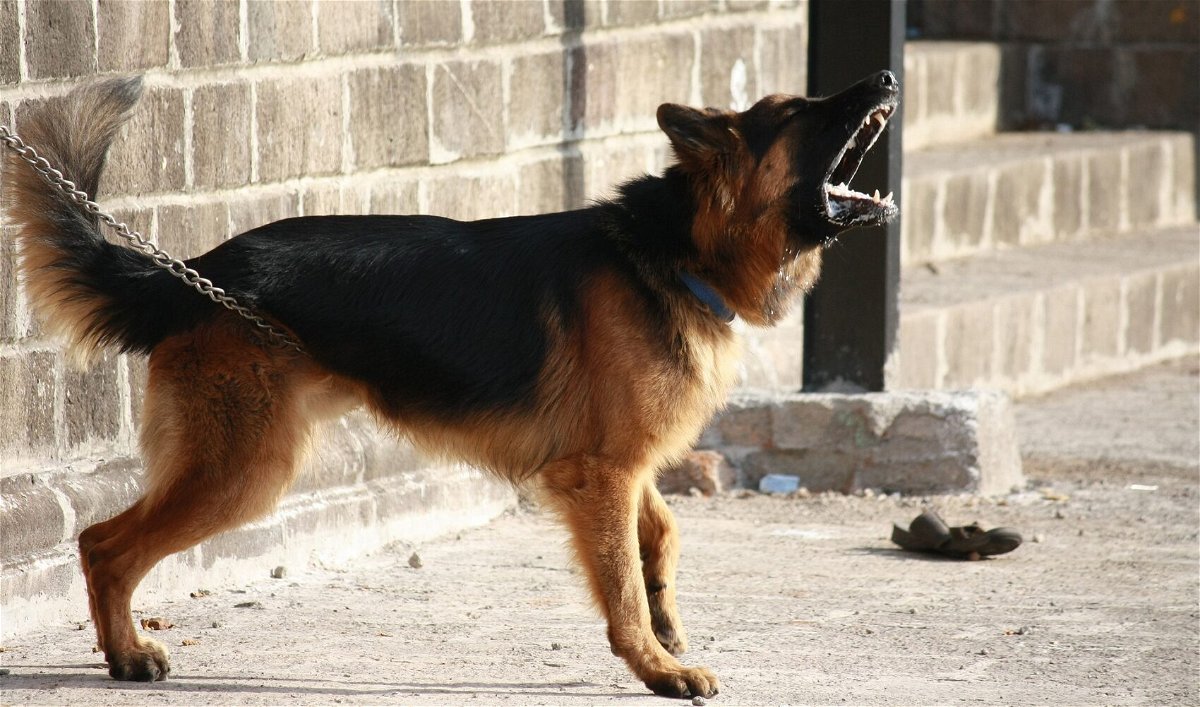
No responses yet